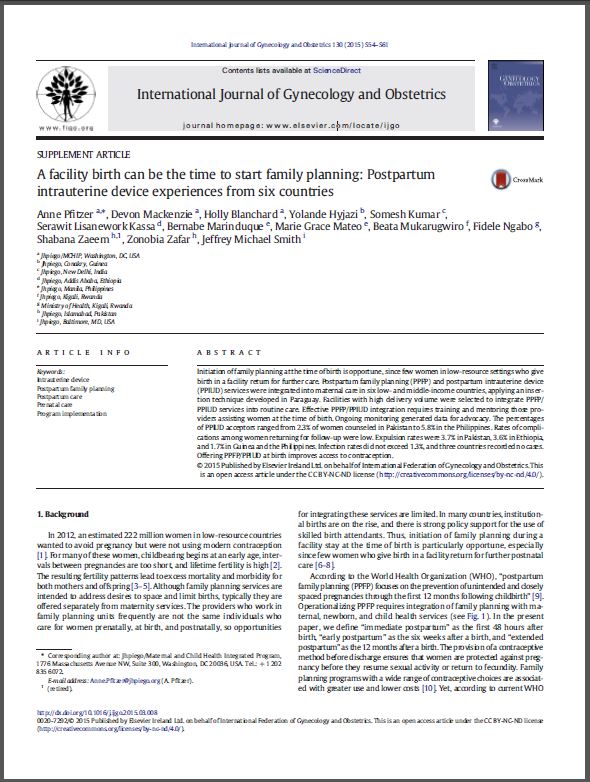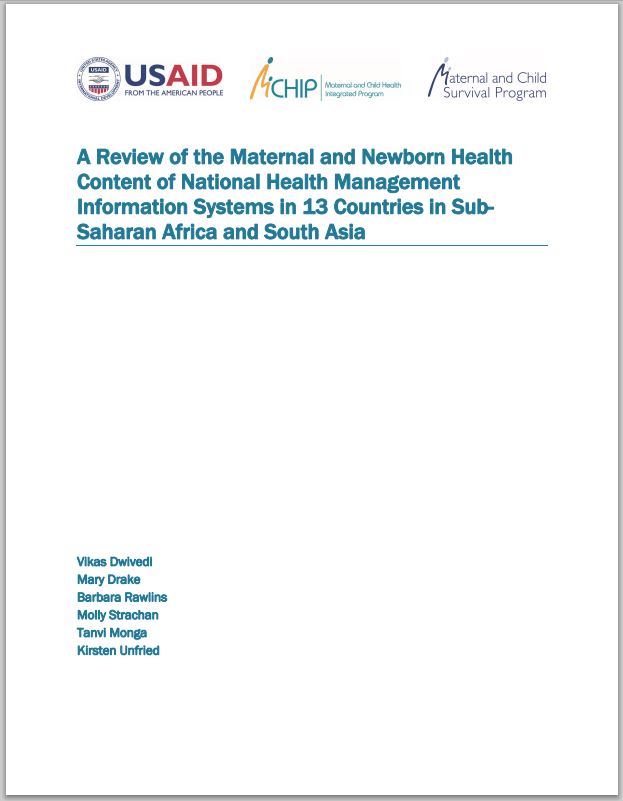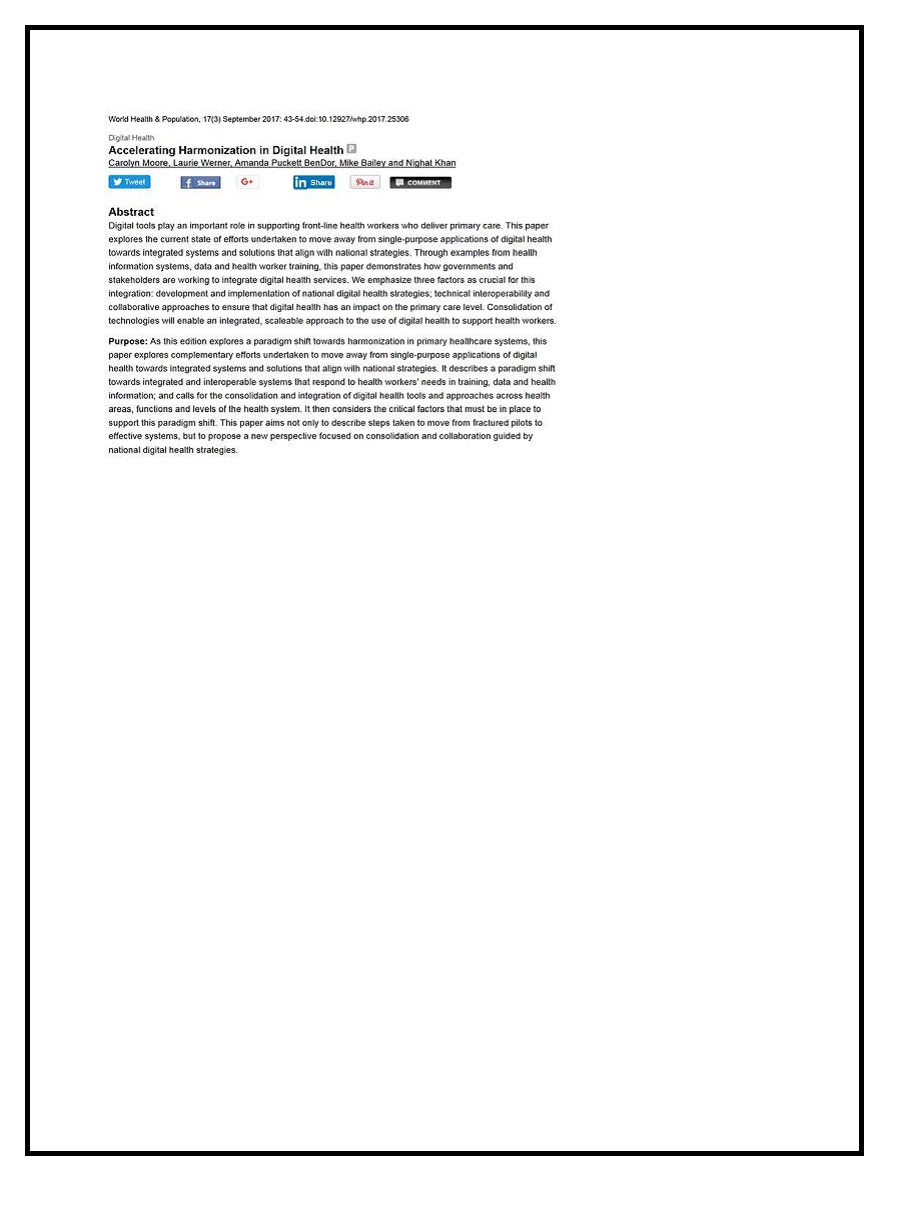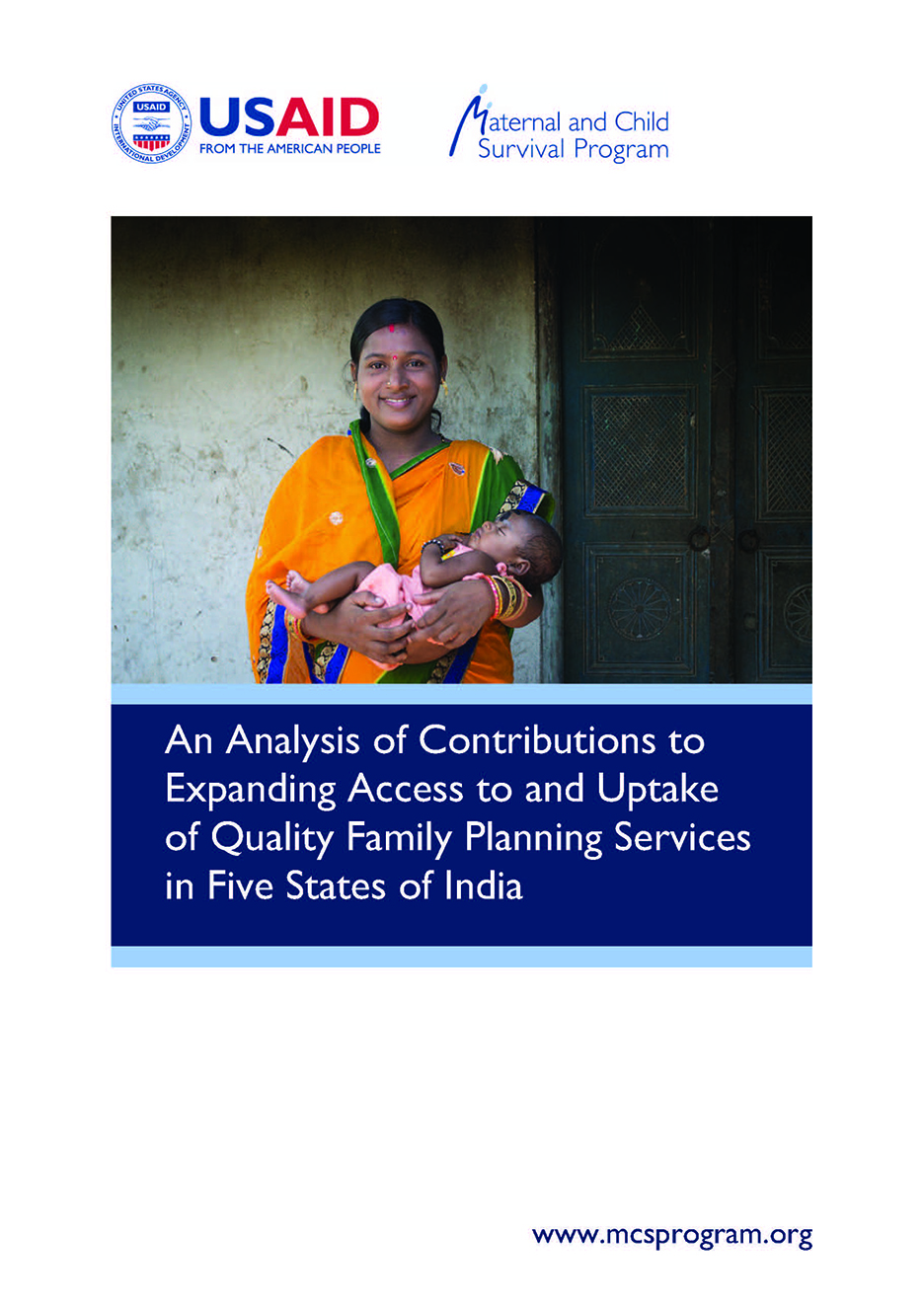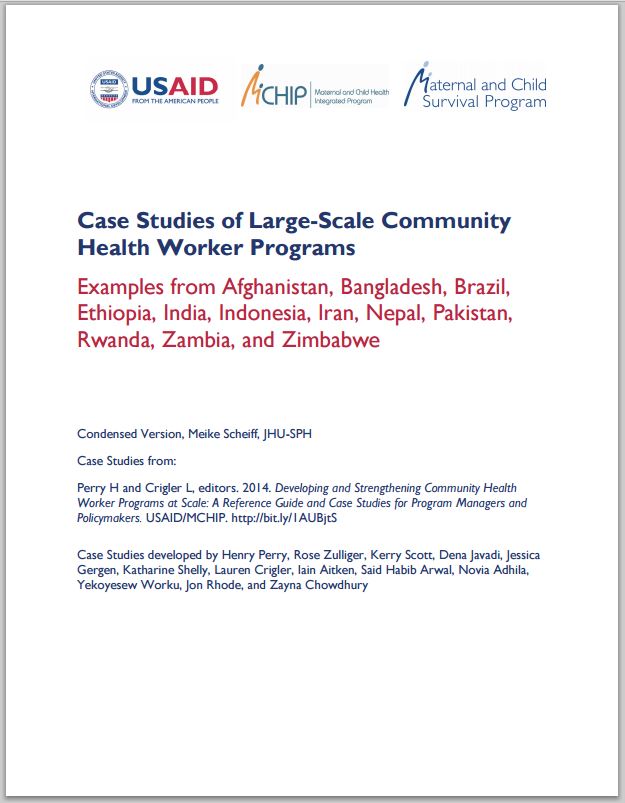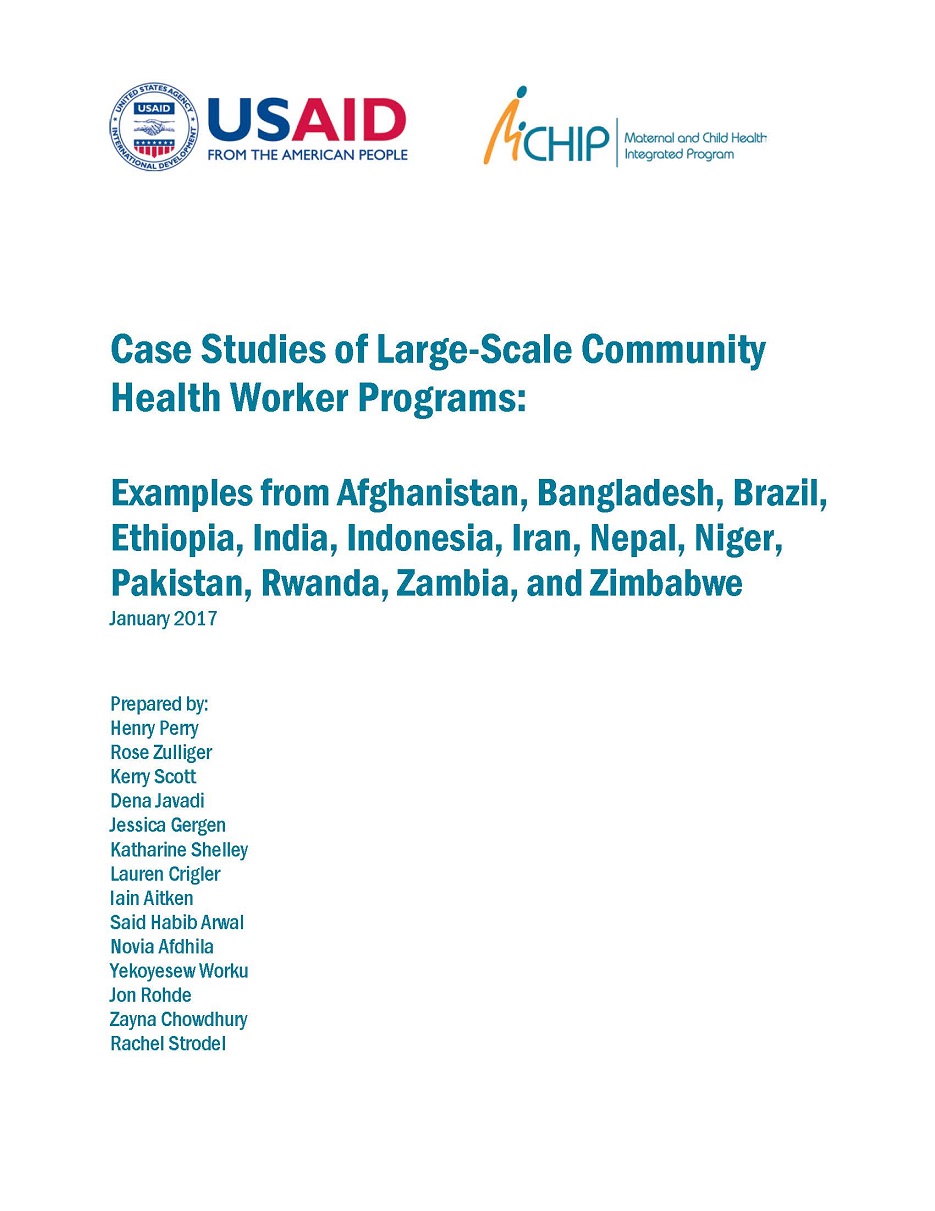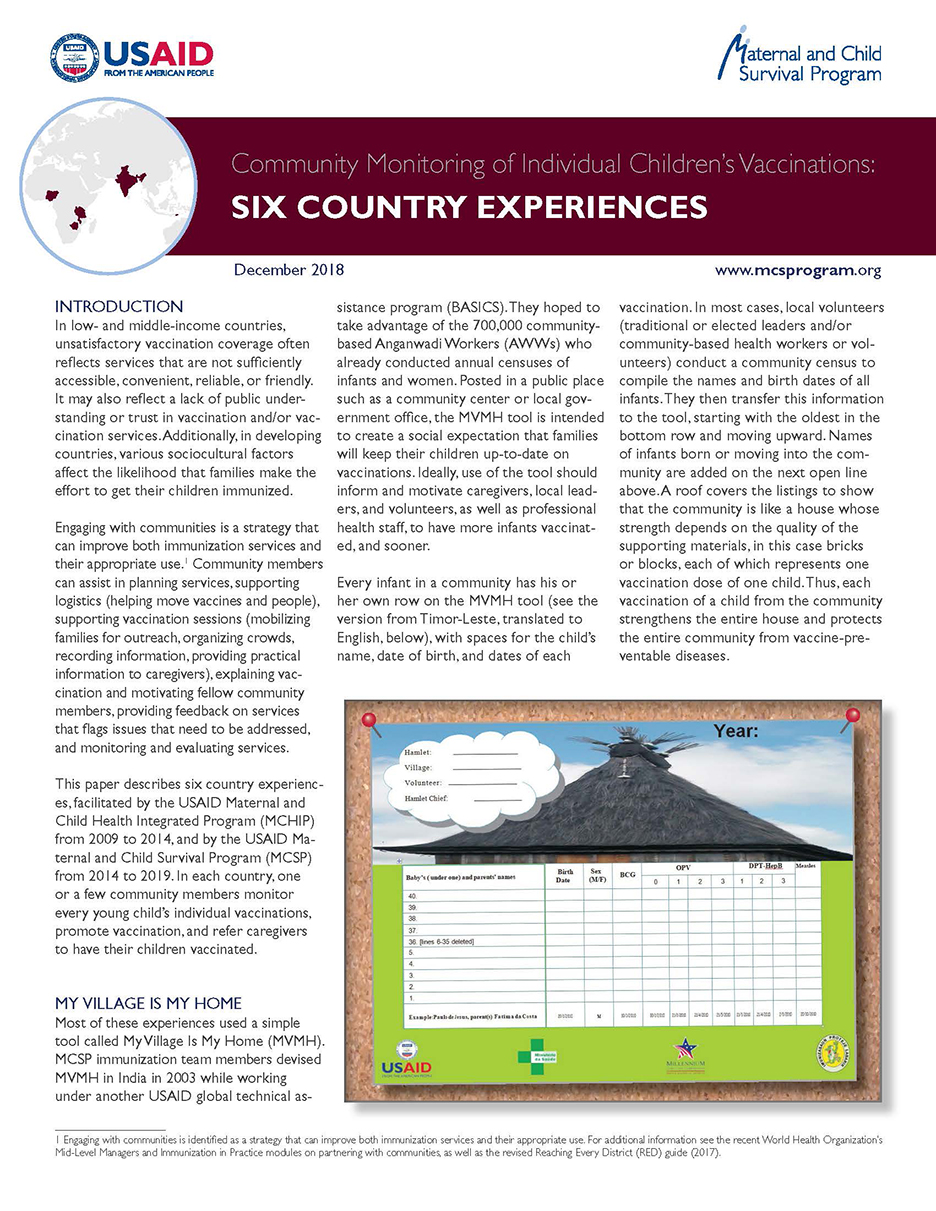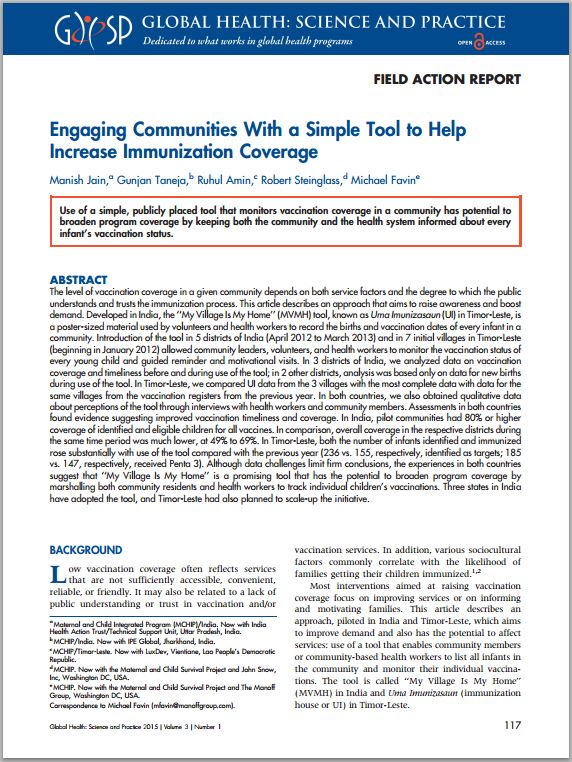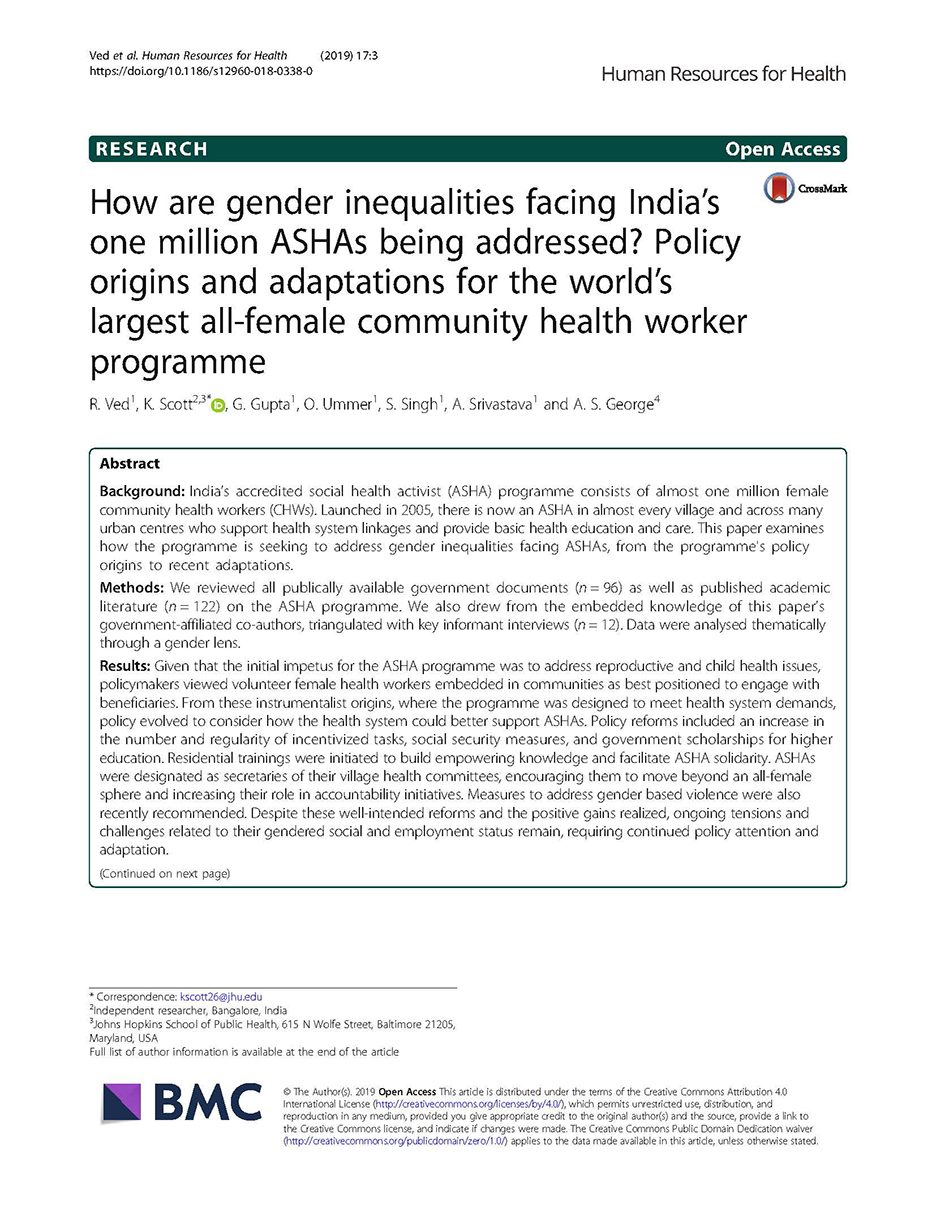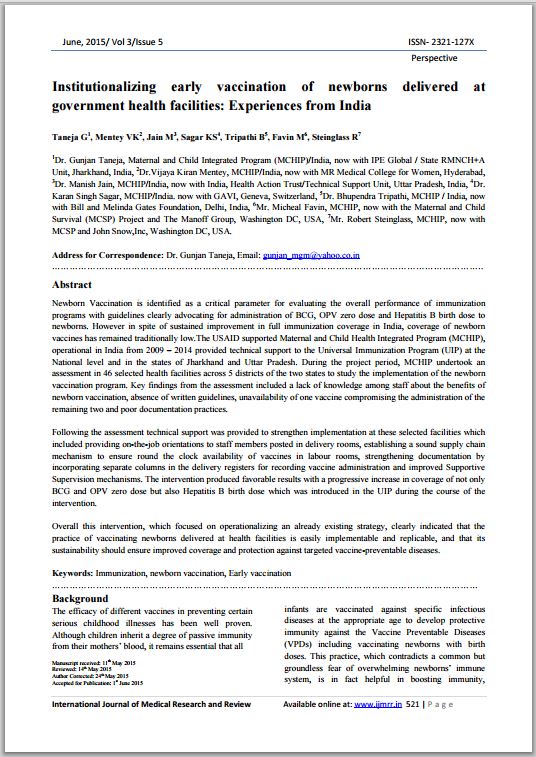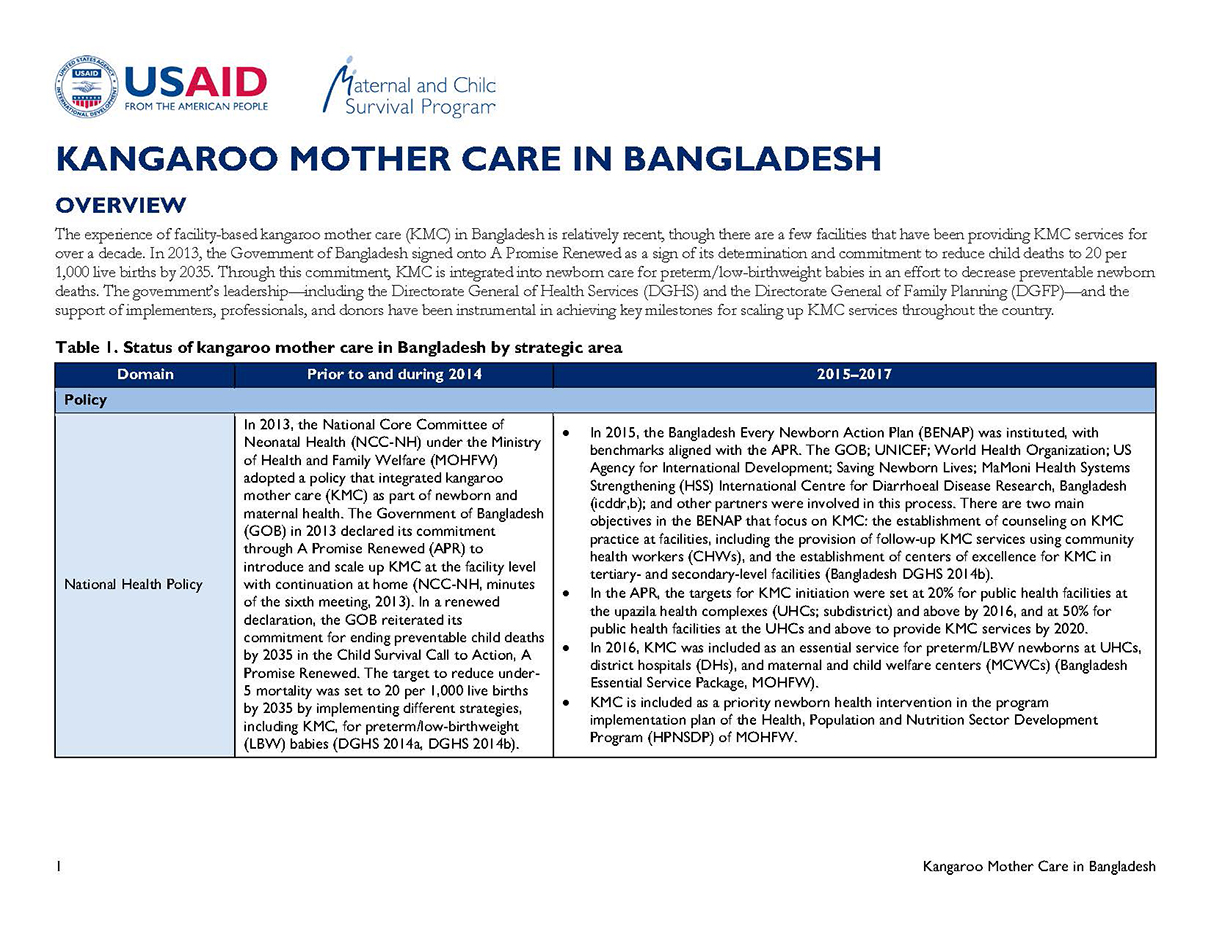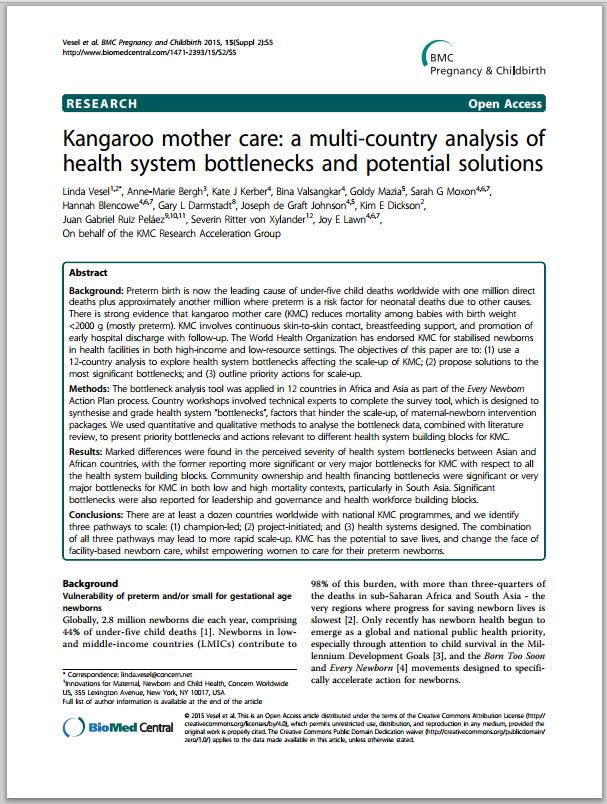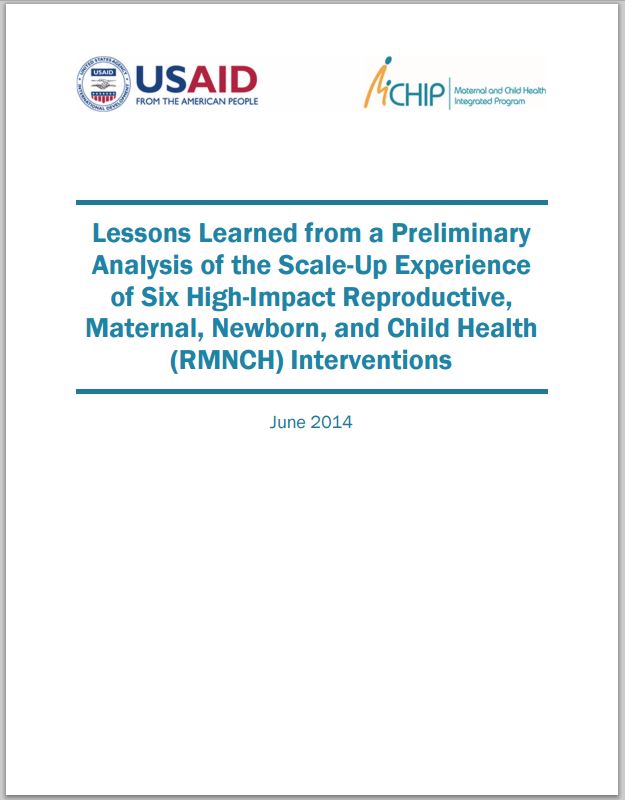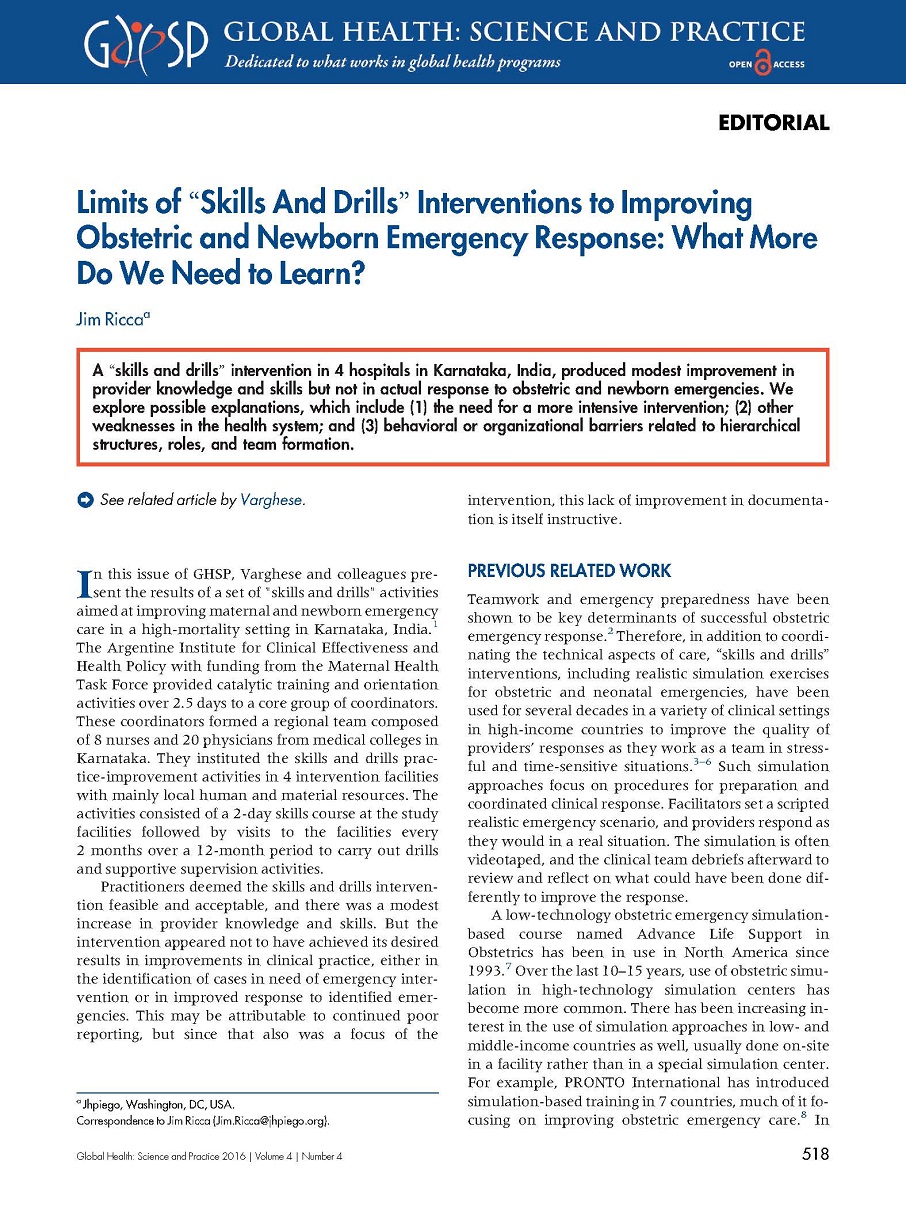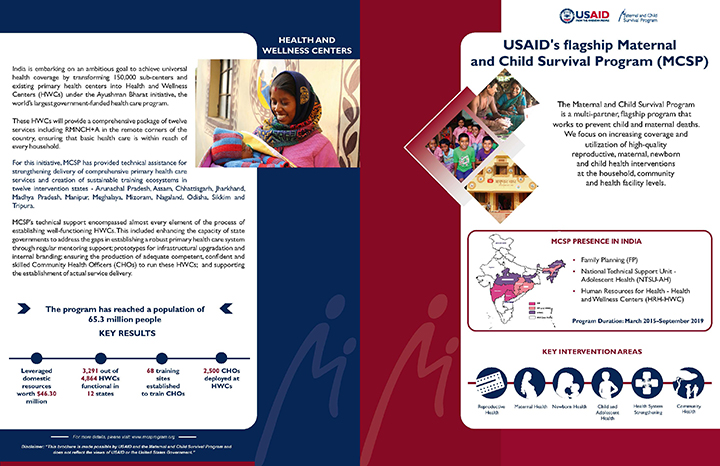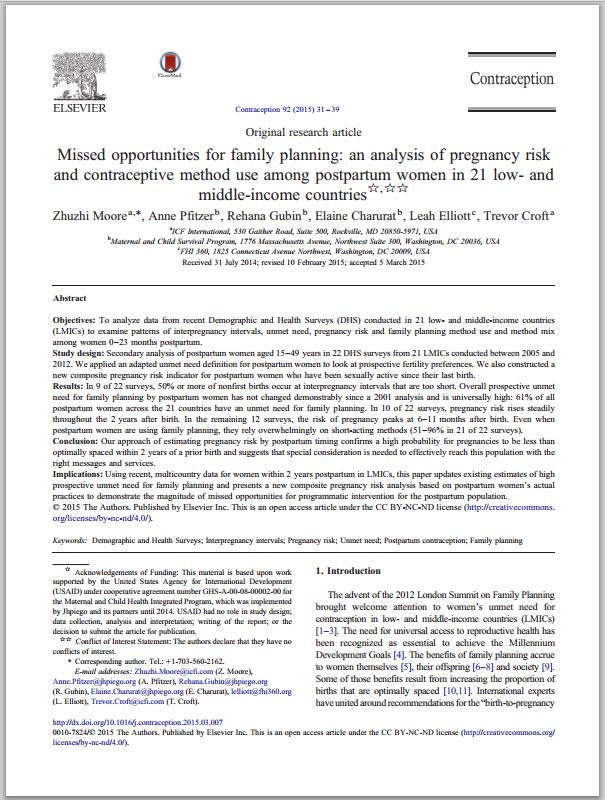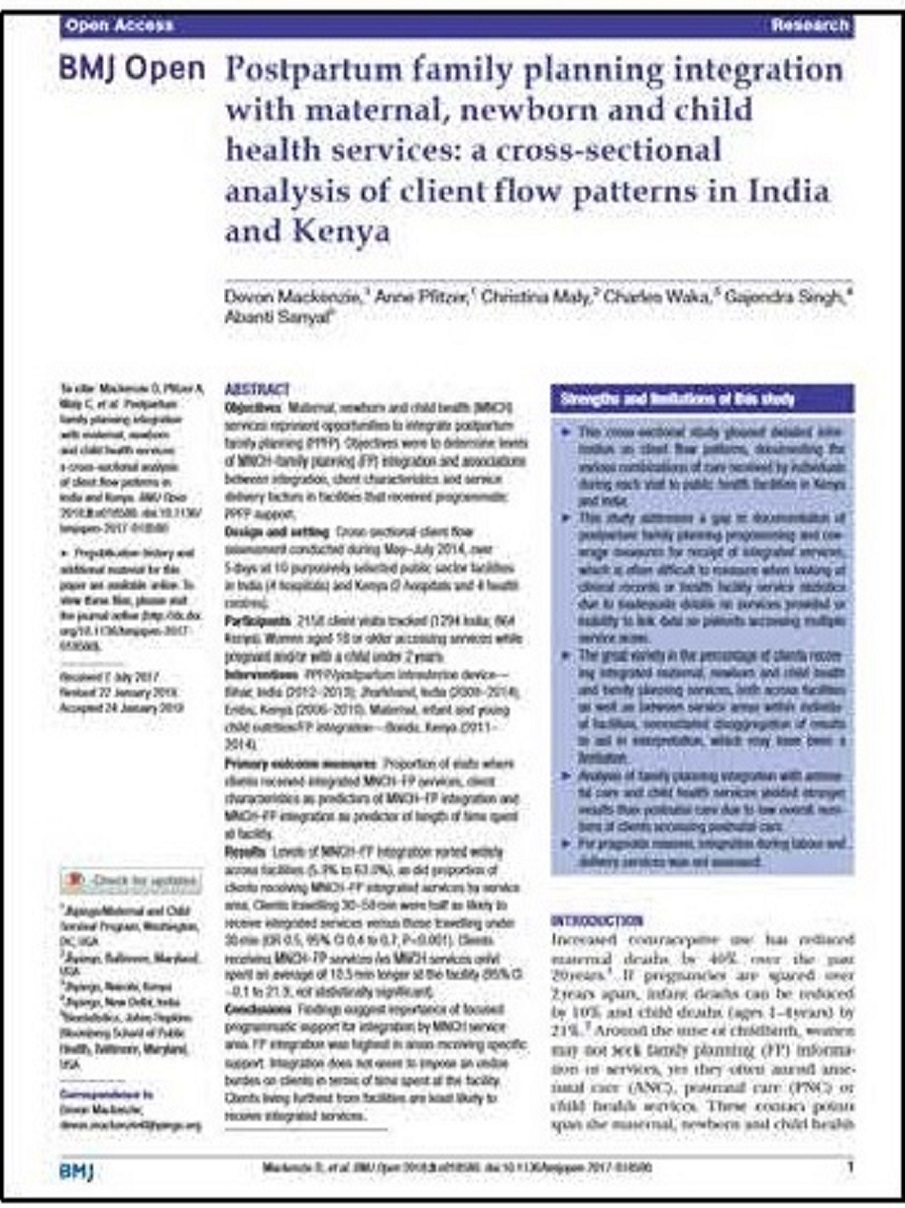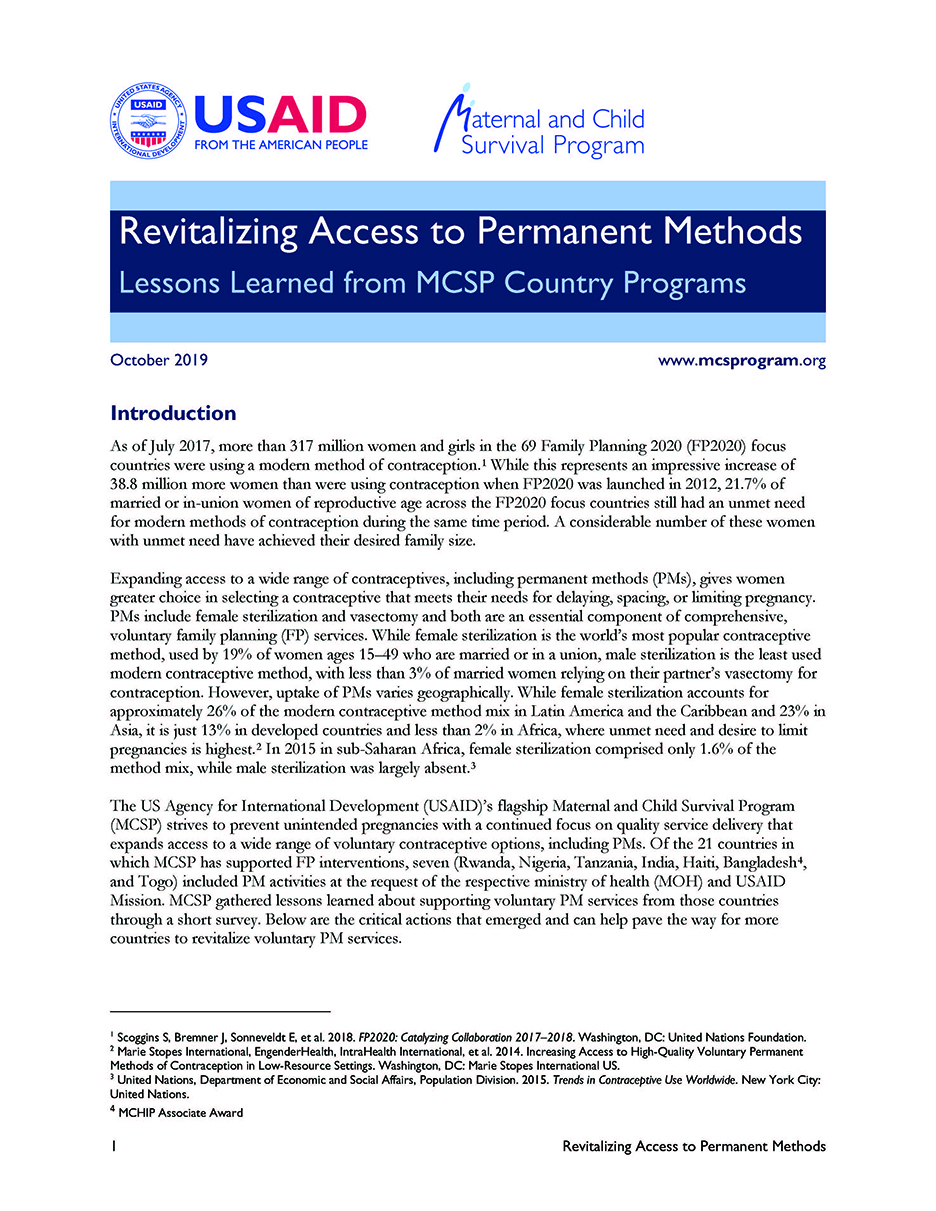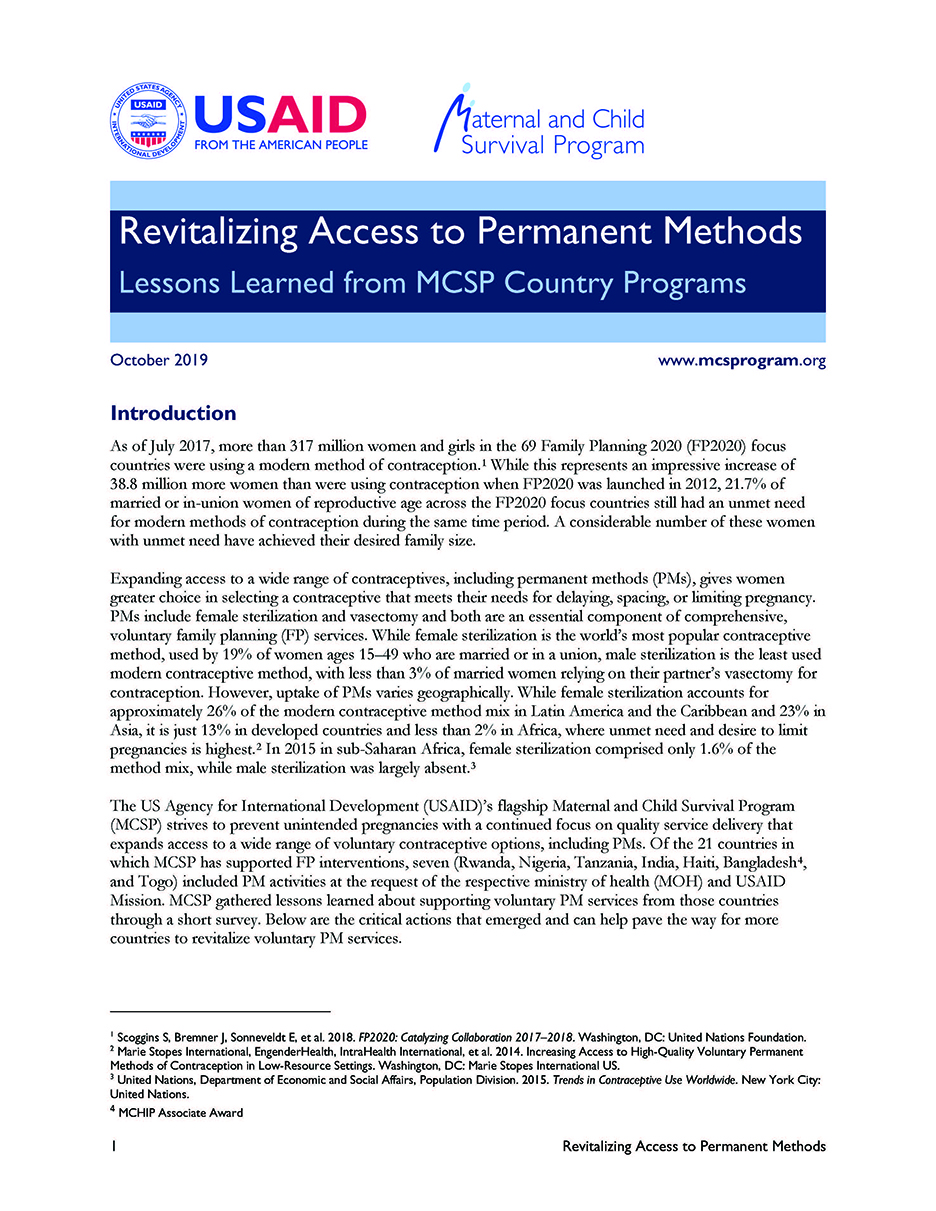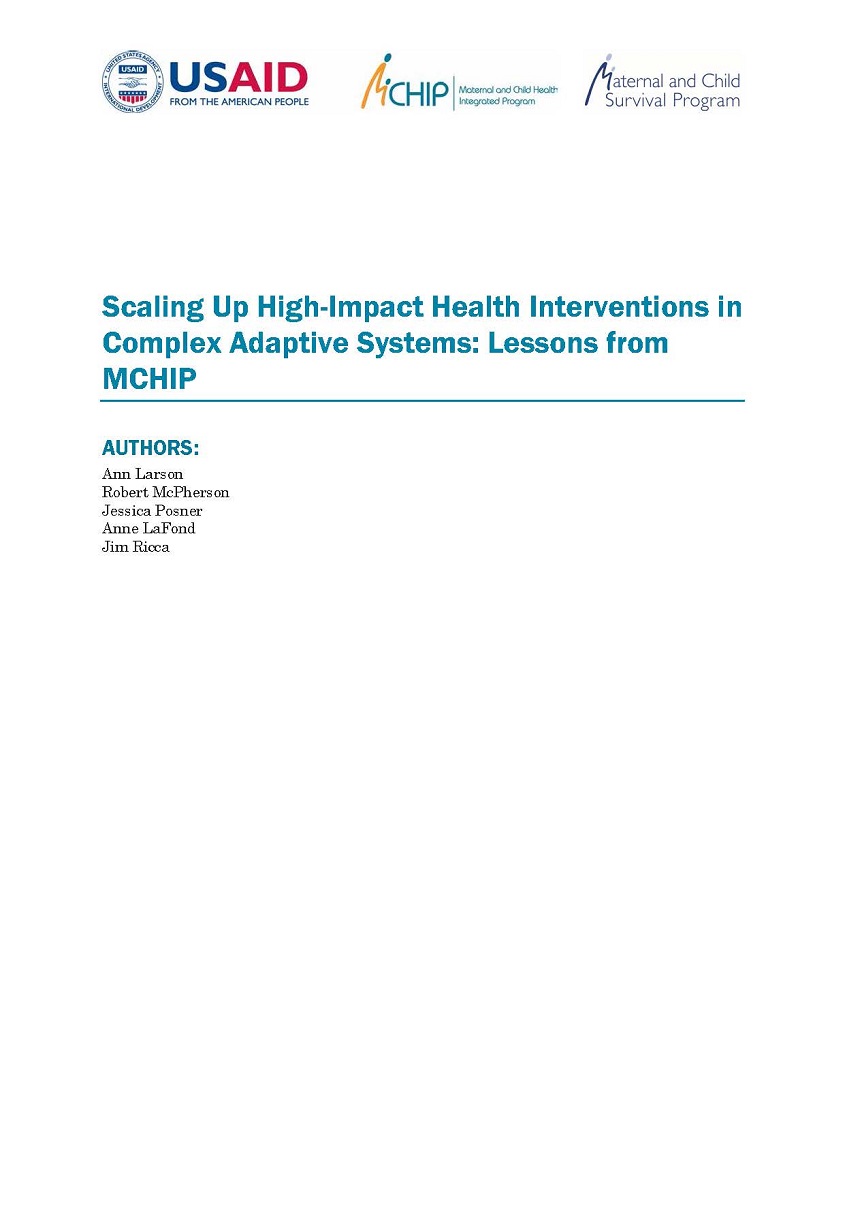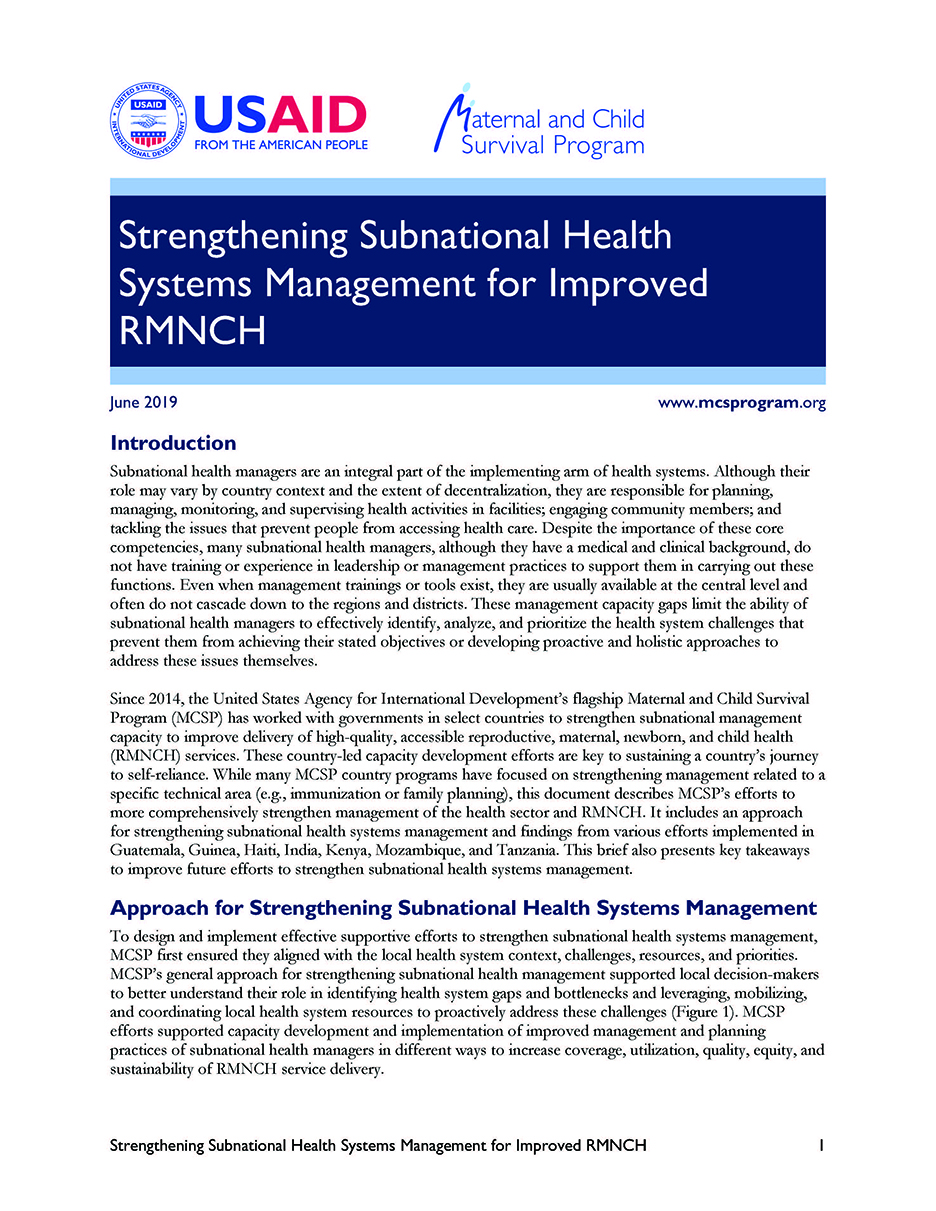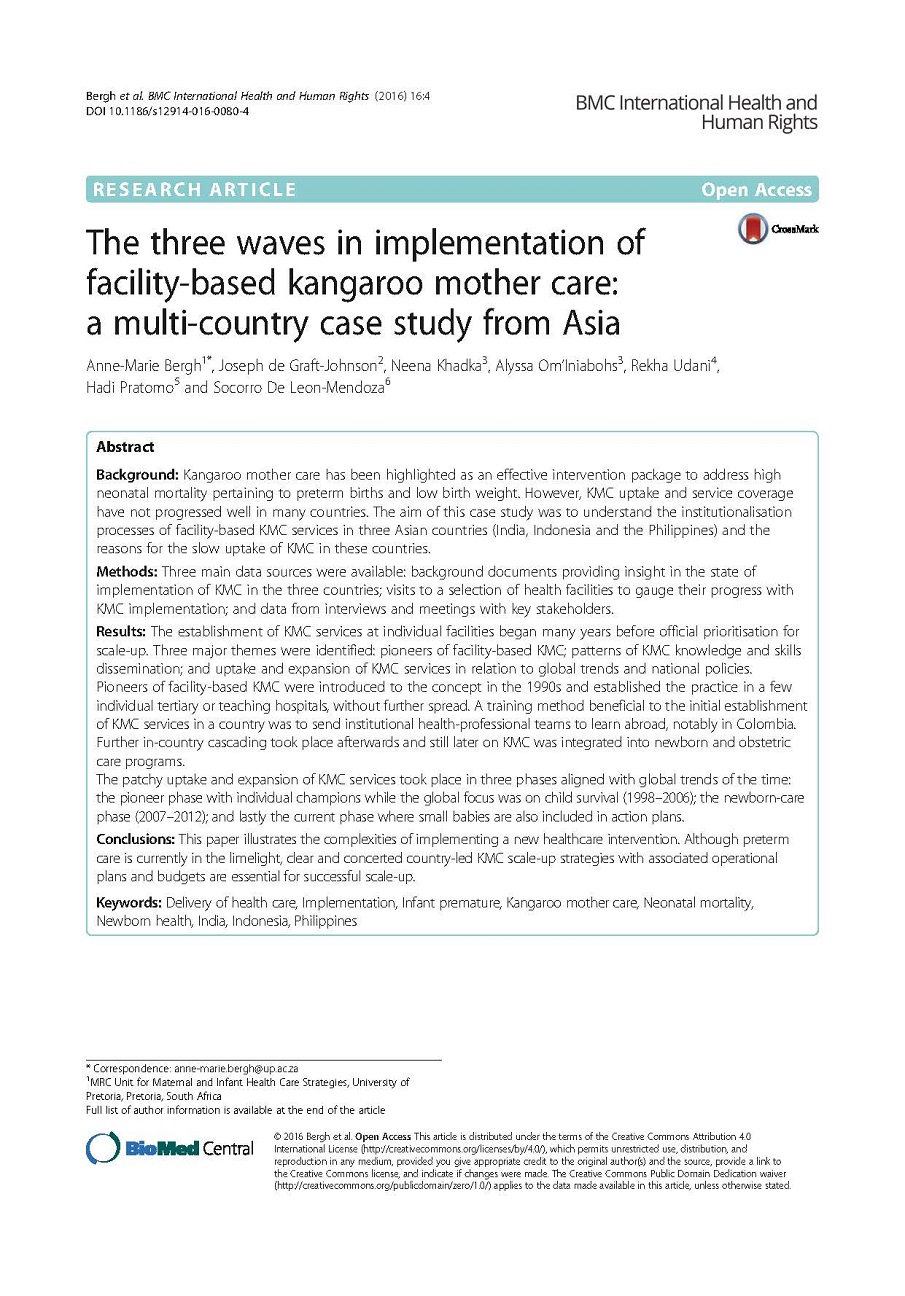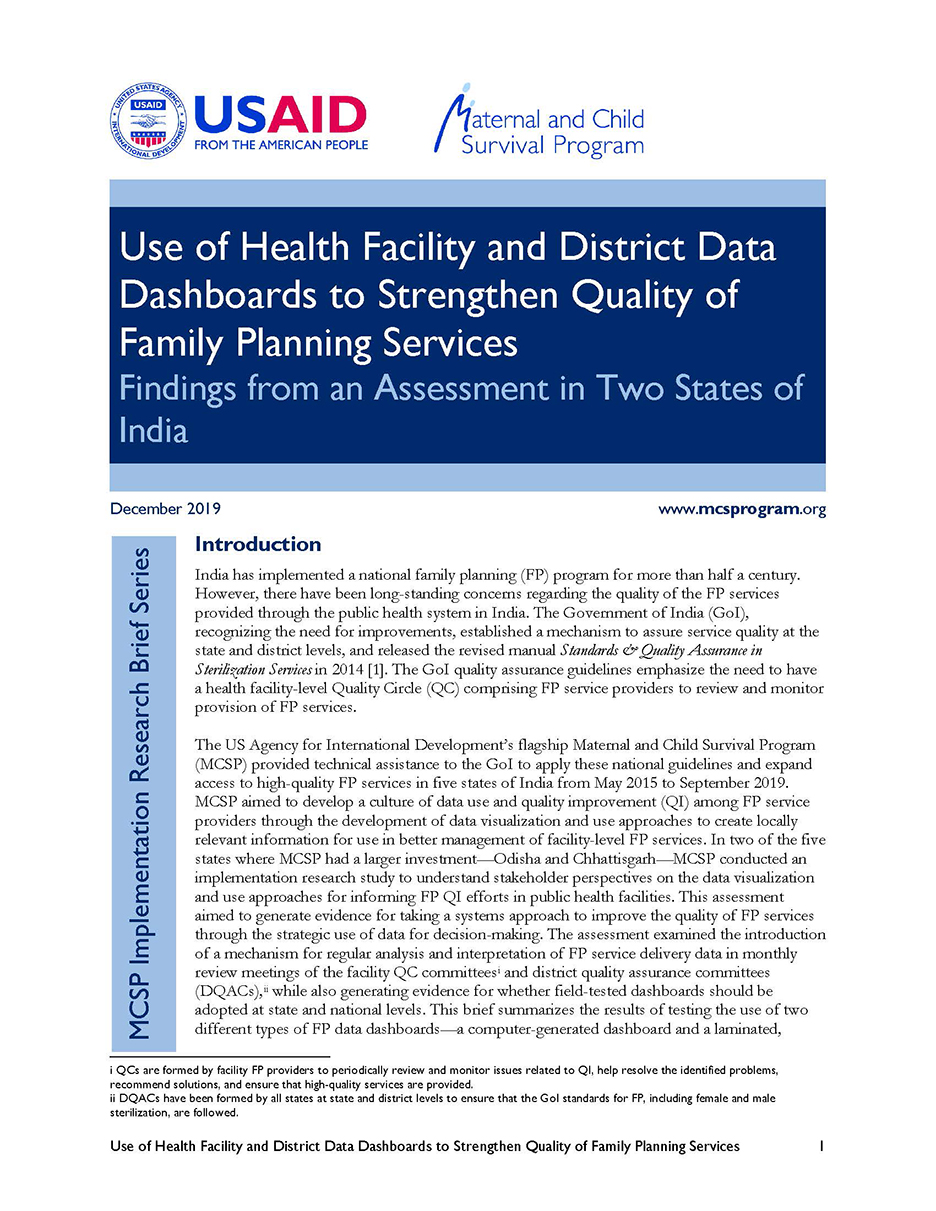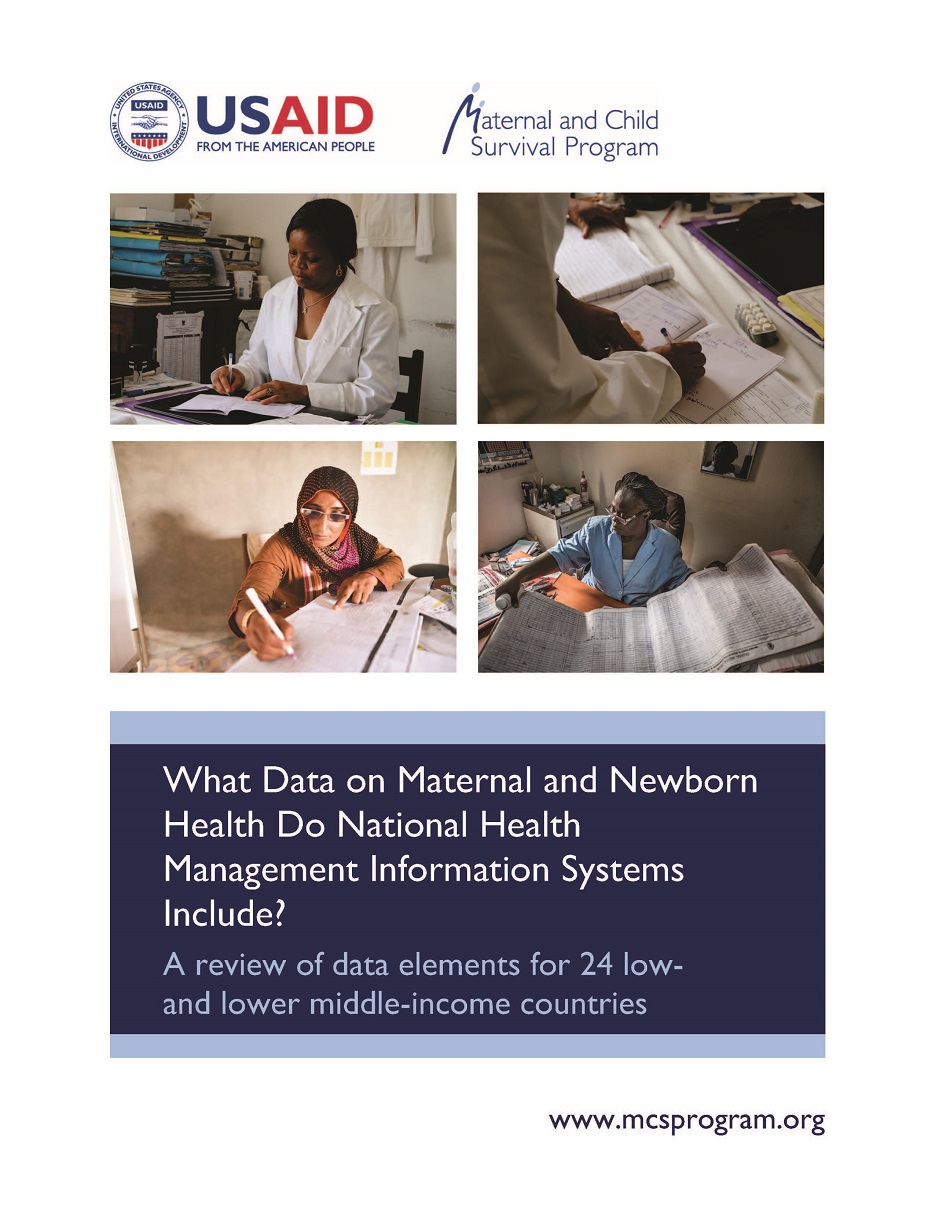25 Resources Found
A facility birth can be the time to start family planning: Postpartum intrauterine device experiences from six countries
This MCSP co-authored article in the International Journal of Gynecology and Obstetrics looks at postpartum family planning and postpartum intrauterine device services integrated into maternal care in six low- and middle-income countries: Ethiopia, Guinea, India, Pakistan, Philippines and Rwanda. To read the open access article, click here. […]
A Review of the Maternal and Newborn Health Content of National Health Management Information Systems in 13 Countries in Sub-Saharan Africa and South Asia
This report summarizes the results and recommendations from a review of health management information system data collection forms and reporting formats in 13 MCHIP countries: Bangladesh, Ethiopia, India, Kenya, Malawi, Mali, Mozambique, Nepal, Nigeria, Rwanda, Tanzania, Uganda and Zimbabwe. […]
Accelerating Harmonization in Digital Health
This MCSP co-authored article – published in the journal World Health & Population – explores the current state of efforts undertaken to move away from single-purpose applications of digital health towards integrated systems and solutions that align with national strategies. Through examples from health information systems, data and health worker training, the authors demonstrate how governments and stakeholders are […]
An Analysis of Contributions to Expanding Access to and Uptake of Quality Family Planning Services in Five States of India
In partnership with the MoHFW, MCSP evaluated the impact of family planning interventions supported by the program in five states of India using a “Contribution Analysis” (CA) methodology to explain the results within the complex adaptive systems within which they were achieved. This report summarizes the programmatic achievements and implications and offers recommendations for future […]
Case Studies of Large-Scale Community Health Worker Programs
This condensed version of the case studies includes examples from Afghanistan, Bangladesh, Brazil, Ethiopia, India, Indonesia, Iran, Nepal, Pakistan, Rwanda, Zambia and Zimbabwe. For the full version of this document, click here. […]
Case Studies of Large-Scale Community Health Worker Programs
This overview of large-scale community health worker (CHW) programs from 13 countries — Afghanistan, Bangladesh, Brazil, Ethiopia, India, Indonesia, Iran, Nepal, Niger, Pakistan, Rwanda, Zambia and Zimbabwe — aims to inform policymakers and program implementers in designing, implementing, scaling up, and strengthening large-scale CHW programs. CHW programs, by their very nature, are a product of the local […]
Community Monitoring of Individual Children’s Vaccinations
In low- and middle-income countries, unsatisfactory vaccination coverage often reflects services that are not sufficiently accessible, convenient, reliable, or friendly. It may also reflect a lack of public understanding or trust in vaccination and/or vaccination services. Additionally, in developing countries, various sociocultural factors affect the likelihood that families make the effort to get their children […]
Engaging Communities With a Simple Tool to Help Increase Immunization Coverage
This MCSP co-authored article in the journal Global Health: Science and Practice highlights the use of a simple, publicly placed tool to monitor vaccination coverage in a community. The “My Village Is My Home” tool proved to broaden program coverage by keeping both the community and the health system informed about every infant’s vaccination status. […]
How are Gender Inequalities Facing India’s One Million ASHAs Being Addressed?
India’s accredited social health activist (ASHA) programme consists of almost one million female community health workers (CHWs). Launched in 2005, there is now an ASHA in almost every village and across many urban centres who support health system linkages and provide basic health education and care. This paper examines how the programme is seeking to […]
Institutionalizing early vaccination of newborns delivered at government health facilities: Experiences from India
This MCSP co-authored article in the International Journal of Medical Research and Review highlights work done under the Maternal and Child Health Integrated Program, which was operational in India from 2009 – 2014 and provided technical support to the Universal Immunization Program (UIP) at the national level and in the states of Jharkhand and Uttar […]
Kangaroo Mother Care briefs
These briefs were developed as part of the Kangaroo Mother Care (KMC) Acceleration Partnership’s work to document the status of KMC implementation. The briefs include a summary of challenges, lessons learned, future actions, and related resources for the following six countries: Bangladesh Ethiopia India Malawi Nigeria Rwanda […]
Kangaroo mother care: a multi-country analysis of health system bottlenecks and potential solutions
This MCSP co-authored article published in the journal BMC Pregnancy & Childbirth aims to: 1) use a 12-country analysis to explore health system bottlenecks affecting the scale-up of kangaroo mother care; (2) propose solutions to the most significant bottlenecks; and (3) outline priority actions for scale-up. The 12 countries reviewed in the article are: Cameroon, […]
Lessons Learned from the Scale-Up Experience of Six High-Impact Interventions in Reproductive, Maternal, Newborn, and Child Health
USAID’s predecessor flagship Maternal and Child Health Integrated Program (MCHIP) worked in more than 50 developing countries in Africa, Asia, Latin America, and the Caribbean to assist in the scale up of high impact interventions in reproductive, maternal, newborn, and child health (RMNCH). This brief summarizes the results of the Program’s scale up experience and […]
Limits of “ Skills And Drills ” Interventions to Improving Obstetric and Newborn Emergency Response: What More Do We Need to Learn?
This article, published in the journal Global Health: Science and Practice, examines a “skills and drills” intervention in four hospitals in Karnataka, India. Results show modest improvement in provider knowledge and skills, but not in actual response to obstetric and newborn emergencies. The author explores possible explanations, which include: 1) the need for a more […]
MCSP in India – Combined Brochure
MCSP has been working in India since April 2015 to strengthen family planning (FP), adolescent health (AH), and health and wellness centers (HWCs). MCSP works to promote the expansion of the current basket of contraceptives available in India and strengthen the provision of quality FP services delivered through the public health system in five states […]
Missed opportunities for family planning: an analysis of pregnancy risk and contraceptive method use among postpartum women in 21 low- and middle-income countries
This open access, MCSP co-authored article in the journal Contraception analyzes data from recent Demographic and Health Surveys conducted in 21 low- and middle-income countries to examine patterns of interpregnancy intervals, unmet need, pregnancy risk, and family planning method use and method mix among women 0–23 months postpartum. The countries reviewed were: Bangladesh, Burkina Faso, […]
Postpartum family planning integration with maternal, newborn and child health services: a cross-sectional analysis of client flow patterns in India and Kenya
This MCSP co-authored article – published in BMJ Open journal – illuminates the degree of maternal, newborn and child health (MNCH) – family planning integration, as well as associations between integration, client characteristics, and service delivery factors in facilities that received programmatic postpartum family planning support. Findings suggest importance of focused programmatic support for integration by MNCH service area. Family […]
Revitalizing Access to Permanent Methods
MCSP strives to prevent unintended pregnancies with a continued focus on quality service delivery that expands access to a wide range of voluntary contraceptive options, including permanent methods (PM). Of the 21 countries in which MCSP has supported FP interventions, seven (Rwanda, Nigeria, Tanzania, India, Haiti, Bangladesh, and Togo) included PM activities at the request […]
Revitalizing Access to Permanent Methods: Lessons Learned from MCSP Country Programs
MCSP strives to prevent unintended pregnancies with a continued focus on quality service delivery that expands access to a wide range of voluntary contraceptive options, including permanent methods. Of the 21 countries in which MCSP has supported family planning interventions, seven (Rwanda, Nigeria, Tanzania, India, Haiti, Bangladesh, and Togo) included permanent method activities at the […]
Scaling Up High-Impact Health Interventions in Complex Adaptive Systems: Lessons from MCHIP
This report grew out of a review of the scale up of six maternal and child health interventions in India, Mali, Bangladesh and Malawi. The objective of the review was to identify effective scale-up strategies. […]
Strengthening Subnational Health Systems Management for Improved RMNCH
This brief describes MCSP’s efforts to more comprehensively strengthen management of the health sector and reproductive, maternal, newborn and child health (RMNCH). It includes an approach for strengthening subnational health systems management and findings from various efforts implemented in Guatemala, Guinea, Haiti, India, Kenya, Mozambique and Tanzania. It also presents key takeaways to improve future […]
The three waves in implementation of facility-based kangaroo mother care: a multi-country case study from Asia
This case study examines the institutionalization processes of facility-based kangaroo mother care (KMC) services in three Asian countries (India, Indonesia and the Philippines) as well as the reasons for the slow uptake of KMC in these countries. This paper illustrates the complexities of implementing a new healthcare intervention. Although preterm care is currently in the […]
Use of Health Facility and District Data Dashboards to Strengthen Quality of Family Planning Services: Findings from an Assessment in Two States of India
In five states of India, MCSP aimed to develop a culture of data use and quality improvement (QI) among family planning service providers through the development of data visualization and use approaches to create locally relevant information for use in better management of facility-level family planning services. In two of the five states where MCSP […]
Uterotonic use immediately following birth: using a novel methodology to estimate population coverage in four countries
This open access article, co-authored by MCSP staff and published in the journal BMC Health Services Research, highlights efforts to develop a methodology for estimating national coverage for uterotonic use immediately following birth. The methodology was then piloted in four countries: India (Jharkhand), Mozambique, Tanzania and Yemen. […]
What Data on Maternal and Newborn Health Do National Health Management Information Systems Include?
This report reviews the data elements related to maternal and newborn health (MNH) present in the health management and information (HMIS) systems in 24 low- and lower middle-income countries. The review’s purpose is to quantify the extent to which key data elements are available in the antenatal, delivery and postpartum registers and associated summary reporting […]
